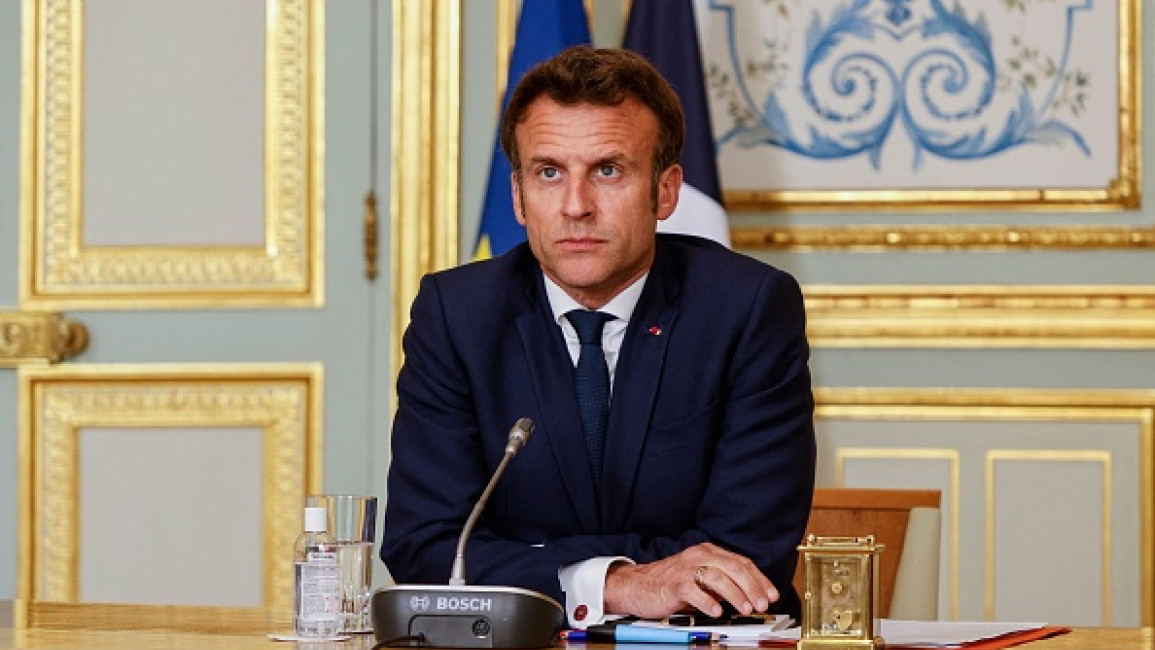Iran nuclear deal 'still possible', says French President Emmanuel Macron during phone call with Ebrahim Raisi
French President Emmanuel Macron on Saturday told his Iranian counterpart Ebrahim Raisi that reviving the landmark 2015 deal on Tehran's nuclear capabilities was "still possible" but must happen "as soon as possible".
Macron also "expressed his disappointment" at the absence of progress after the suspension of talks in Vienna and underlined the need for Iran to return to the accord and implement its nuclear commitments, according to a French presidency statement.
The French leader's telephone call with Raisi comes as negotiations in Vienna between Iran and world powers including the United States have stalled since March.
The 2015 deal aimed to prevent Iran from developing the capability to acquire an atomic bomb in exchange for lifting sanctions that have hobbled its economy.
But former president Donald Trump unilaterally withdrew the United States from the accord in 2018 and reimposed sanctions, leading Tehran to begin rolling back on its commitments.
In June, Qatar hosted indirect talks between the United States and Iran in a bid to restart the diplomatic efforts in Vienna, but discussions were interrupted after two days without a breakthrough.
The Iranian presidency said Raisi "condemned the unconstructive positions and actions of the United States and European countries" during his two-hour conversation with Macron on Saturday.
Last week, an Iranian official said Tehran had the technical capacity to make a nuclear bomb but clarified that it had not decided to make any.
The Iranian foreign ministry said there was "no change" in its nuclear policy, referring to an Islamic ruling that forbids "arms of mass destruction".
Macron also "reiterated his deep concern" about four French citizens "arbitrarily held" in Iran during his call with Raisi.
They include Benjamin Briere, sentenced to more than eight years in jail for spying, and French-Iranian researcher Fariba Adelkhah, who received a five-year prison term in May 2020 for endangering national security.
The two other detainees are trade unionists held since May 11 and accused of threatening Iranian security.



